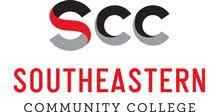Southeastern Community College (IA)
Selected Programs at Southeastern Community College (IA)
Explore programs at Southeastern Community College (IA). This list is curated by SkillPointe to match skills-based industries and careers that don't require a four-year degree.
Browse Training Programs (9)
Address
1500 West Agency Road
West Burlington, IA 52655-0180
West Burlington, IA 52655-0180
Phone number
319-752-2731

